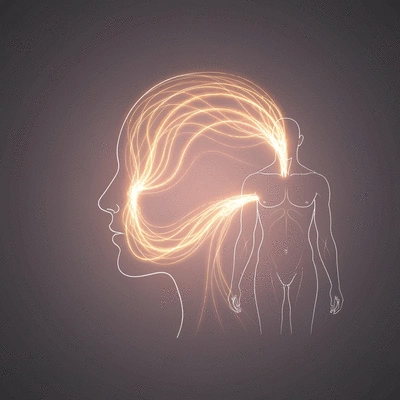
Are you feeling overwhelmed by the relentless pace of modern life? You're not alone. As society grapples with increased stress, mindfulness emerges as a beacon of hope, offering practical solutions to enhance emotional well-being.
This visual summarizes key scientific findings and actionable steps for integrating mindfulness into daily life, as highlighted in current research and expert recommendations.
— Research Highlights
— Practical Strategies
— Step-by-Step Guide
— Resources for Growth
In our fast-paced world, where stress often feels like an unavoidable companion, the concept of mindfulness has gained significant traction. More than just a buzzword, mindfulness represents a powerful approach to managing stress effectively. As the founder of Stress Insight Solutions, I’ve seen firsthand how individuals and families can benefit from integrating mindfulness practices into their daily routines. This section will explore the growing importance of mindfulness, current research findings, and the intricate connection between mindfulness and emotional well-being.
As technology advances and societal pressures mount, many are turning to mindfulness as a crucial tool for mental well-being. By engaging in mindfulness practices, individuals can cultivate a sense of calm amidst the chaos of modern life. Here are a few reasons why mindfulness is becoming increasingly essential:

The shift toward mindfulness isn’t just a trend; it’s a necessity in our ever-demanding lives. By understanding its relevance, we can better implement mindfulness strategies to enhance our mental well-being.
Research in 2025 continues to shed light on the benefits of mindfulness meditation. Emerging studies consistently demonstrate that regular practice can lead to significant improvements in mental health. A few key findings include:
These findings highlight the transformative power of mindfulness meditation, reinforcing its role as a viable approach for managing stress and improving overall emotional health.
The relationship between mindfulness and emotional well-being is a fascinating area of study. When we practice mindfulness, we’re not just quieting our minds; we’re also actively engaging our bodies in the process. For example, mindfulness techniques like deep breathing can help mitigate the physiological effects of stress, leading to a more balanced emotional state.

Moreover, by connecting with our bodily sensations and acknowledging our thoughts without judgment, we can cultivate a deeper understanding of our emotions. This increased awareness can promote a greater sense of self-compassion and acceptance, which are critical for emotional well-being. Ultimately, integrating mindfulness into our lives opens up new pathways for healing and resilience.
To deepen your mindfulness practice, consider setting aside specific times during your day—like morning or evening—to engage in mindfulness meditation. This consistent routine can help create a mental cue that signals your mind and body to enter a state of relaxation and awareness, making it easier to integrate mindfulness into your daily life.
As we wrap up our exploration of mindfulness and meditation in 2025, it's essential to reflect on the scientific findings that highlight their significant role in stress relief. Research consistently shows that engaging in mindfulness practices can lead to notable improvements in emotional well-being, anxiety reduction, and overall mental health. These findings emphasize the necessity of integrating mindfulness into our daily routines.
In essence, mindfulness isn’t just a trendy buzzword; it’s a powerful tool supported by science. As a clinical psychologist, I’ve seen firsthand how mindfulness can transform lives. By reducing stress and enhancing emotional resilience, it offers a pathway to better mental health for everyone.
These findings provide a strong rationale for incorporating mindfulness into our lives. At Stress Insight Solutions, we believe that understanding these benefits empowers individuals to take proactive steps toward improved mental health.
Maintaining the benefits of mindfulness requires commitment and integration into daily life. Here are some practical strategies to help you sustain your mindfulness practice:
By adopting these strategies, you can ensure that the benefits of mindfulness are not temporary but become a lasting part of your lifestyle.
Community support plays a crucial role in reinforcing mindfulness practices. Joining groups or participating in wellness programs can enhance your motivation and provide a sense of belonging. Here are some options to consider:
At Stress Insight Solutions, we encourage individuals to connect with such resources. Building a supportive community can provide the encouragement needed to maintain your mindfulness practice long-term.
Ready to embark on your mindfulness journey? Here’s a step-by-step guide to help you get started!
This simple approach can help you ease into mindfulness without feeling overwhelmed. Remember, it’s about progress, not perfection!
Connecting with community resources can enhance your mindfulness journey. Here are a few ways to find support:
Engaging with others who share your interests can provide motivation and accountability as you develop your practice.
Consider enrolling in mindfulness courses or workshops to deepen your understanding and practice. Here are some types of programs you might find:
These opportunities can help you cultivate a richer mindfulness practice while connecting with others on a similar journey. At Stress Insight Solutions, we are committed to helping you discover tools and resources to enhance your mental health and well-being.
Here is a quick recap of the important points discussed in the article:
We illuminate the causes and effects of stress through science-informed resources, empowering you to recognize stressors and implement effective coping strategies. Your mental well-being is our priority.
